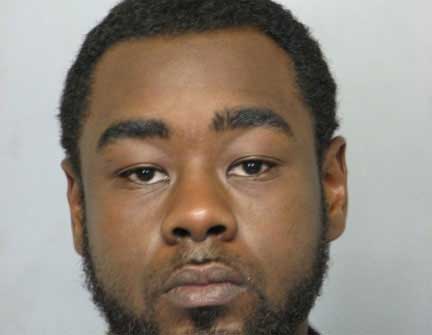

Monk agreed to proffer and to wear a wire in his dealings with Watts. When Monk called, Spalding and Echeverria spelled out the offer the feds were prepared to make in exchange for his cooperation in the Watts investigation. They arranged to talk with him via her cellphone. Several weeks later, Monk’s girlfriend let Spalding and Echeverria know that he had been locked up. As the buildings came down, the “careful and calculating” Watts, as Spalding once described him, and his team were becoming increasingly reckless. The accelerating pace of public-housing demolitions, it appeared, was destabilizing things not only for the gangs but also for corrupt police who fed on the drug trade. “I don’t know where it’s going to end.” Referring to the fate of his brother, Kamane Fears, he said he was worried he was in line for “the Watts Special.” “They’re out of control,” he told Spalding and Echeverria. Cellular Field, he said, the officers had taken the cuffs off and released him. He described how he had banged around in the backseat of the Tahoe because he was handcuffed and couldn’t brace himself. Spalding and Echeverria were familiar with this individual. Monk’s girlfriend noticed that a man she recognized, who worked the Obama dope line, was handcuffed in the backseat of the Tahoe. They didn’t even check on the condition of the woman and infant who remained in the car. Watts and his team seized the dope and cash. A wild car chase ensued on the Dan Ryan Expressway, Lake Shore Drive, and ultimately into the Hyde Park neighborhood, where Monk lost control of the car and crashed in a park. Watts and his partner Mohammed were in an unmarked car with city plates, and Brian Bolton and Bobby Gonzales, two other members of the team, were in a CPD Tahoe. The girlfriend told them the following story: She and their baby were in the car with Monk, who was in the process of re-upping, distributing packages, and collecting money - so there was lots of dope and cash in the car. One day, as they drove past the apartment where Monk Fears and his girlfriend lived, they noticed his car was smashed up. Yet they continued - “two officers, one car, one radio” - to work the case.


Exposed and isolated, now known as “IAD rats,” they knew better than anyone what Watts and Co.

According to Spalding and Echeverria, the character of their jobs - the very air through which they moved - had fundamentally changed after they were outed by the head of internal affairs, Chief Juan Rivera. Operating largely on their own without meaningful support from either the FBI or CPD’s internal affairs division, Chicago police officers Shannon Spalding and Danny Echeverria carried on as best they could with their investigation into the far-flung criminal enterprise allegedly run by Sgt. Superintendent Garry McCarthy leaves a Chicago police station in the Englewood neighborhood following a press conference on May 6, 2013. Among the things known about McCarthy that might have been expected to stir anxieties were his strong identification with CompStat and his intention to move swiftly to make good on Emanuel’s campaign pledge to put an additional 1,000 officers on the street. This is especially true when the new superintendent comes from outside and is an unknown quantity. While the integrity of Mayor Daley’s Superintendent Jody Weis was never questioned, he had often seemed politically tone deaf and had proved unable to translate his outsider status into effective power within the department.Įmanuel’s choice - Garry McCarthy, the police director of Newark, New Jersey - was also an outsider, but he was described as “a cop’s cop.” McCarthy had earlier served under William Bratton in New York, where he built his reputation managing CompStat, the data-driven management tool the NYPD had developed for holding commanders accountable for crime in their districts.įor high-ranking police officials, transitions in department leadership are “times of upheaval,” as one put it to me. No Emanuel appointment was more closely watched than his choice of a new superintendent for the Chicago Police Department. Being mayor of Chicago, he insisted, was his dream job. His election drew national attention and insistent speculation that he saw the role of mayor as a stepping stone to the White House, something he repeatedly denied. On February 22, 2011, Rahm Emanuel was elected mayor of Chicago, bringing to an end the 22-year reign of Mayor Daley the Second.


 0 kommentar(er)
0 kommentar(er)
